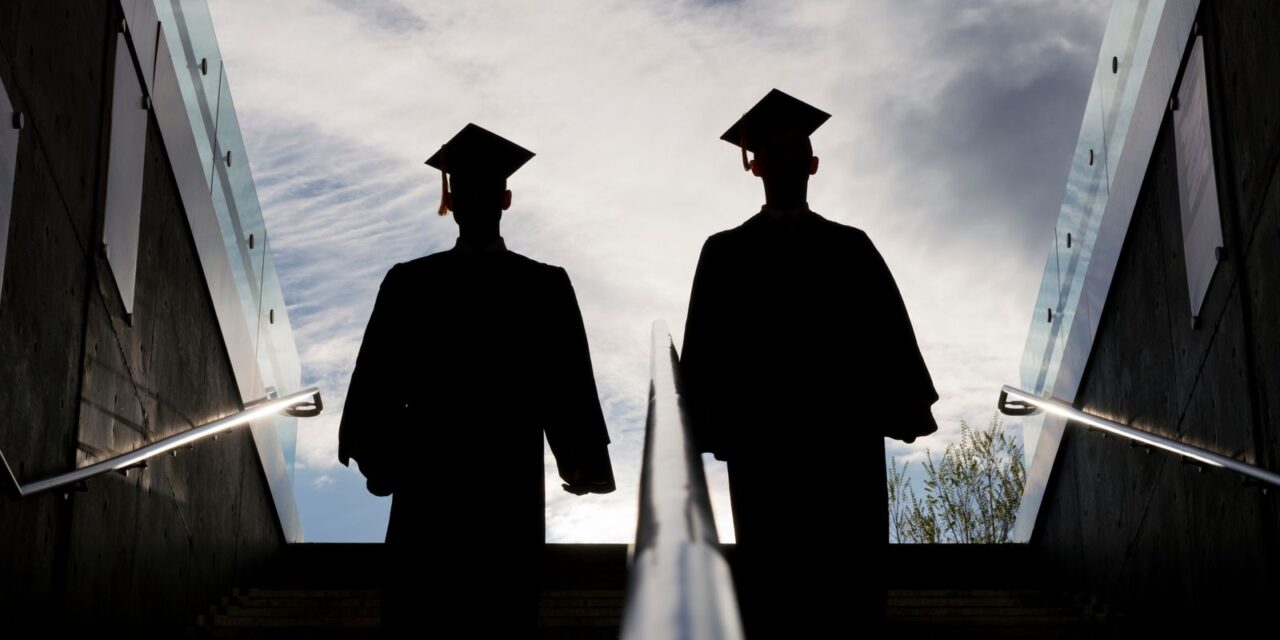Two graduates in cap and gown seen in silhouette. Some 25.5 million consumers, or 60% of those with student debt, took advantage of pandemic-related forbearance provisions, but the Supreme Court struck them down last month. Aaron Hawkins/iStock via Getty Images
Daphne Howland|Source: www.retaildive.com, July 2023
Peloton, HomeGoods and Old Navy, along with most apparel and department stores, will be among the hardest hit, according to Earnest Analytics.
Dive Brief:
- This fall, as the holidays loom, borrowers who must resume loan payments after the Supreme Court struck down President Biden’s student debt forgiveness program will be shelling out $300 per month each on average, according to number-crunching from consumer data firm Earnest Analytics.
- Some 25.5 million consumers, or 60% of those with student debt, took advantage of forbearance provisions in the pandemic-related CARES Act, per the report, citing College Board numbers.
- Like other analysts, Earnest researchers warn that, “With interest resuming in September and payments in October, a $300/month bill on many consumer budgets may add pressure to an already cautious spending environment.”
Dive Insight:
In the past several months, many consumers with extra money to spend have prioritized services and experiences over goods. That has shown up in the government’s retail sales numbers all year, though retailers have managed to post solid year-over-year gains most months. The need to dedicate funds to loans that had once been forgiven will arise for many consumers this fall, as they mull budgets for back to school and the holidays.
That’s bad timing for the industry, and certain retailers are especially vulnerable. According to the Earnest report, those with higher market share among borrowers who had been able to suspend payments include Peloton, Ikea, Ashley, HomeGoods, Wayfair, Lowe’s, and most apparel and department stores. Specifically, Old Navy had the highest share at 14%, while Nordstrom’s full price business had the lowest share at 8%, Earnest found.
Other analysts have also noted that apparel retailers will take a big hit. UBS analysts, who called the end of student loan forgiveness “a big problem,” previously identified American Eagle, Crocs, Foot Locker, Canada Goose, Gap Inc., Nordstrom, Nike, Under Armour and Victoria’s Secret as among the brands that are especially at risk.
Despite the impact on discretionary spending and the holiday timing, the student loan issue hasn’t been in focus at major industry organizations like the National Retail Federation and the Retail Industry Leaders Association. The Supreme Court’s decision nixed the plan to cancel up to $20,000 in loan debt for individuals earning $125,000 or less a year, and it’s unclear what action, if any, Congress would take.
The issue remains a priority at the White House. A week ago the U.S. Department of Education announced $39 billion in student loan relief for more than 800,000 borrowers.

